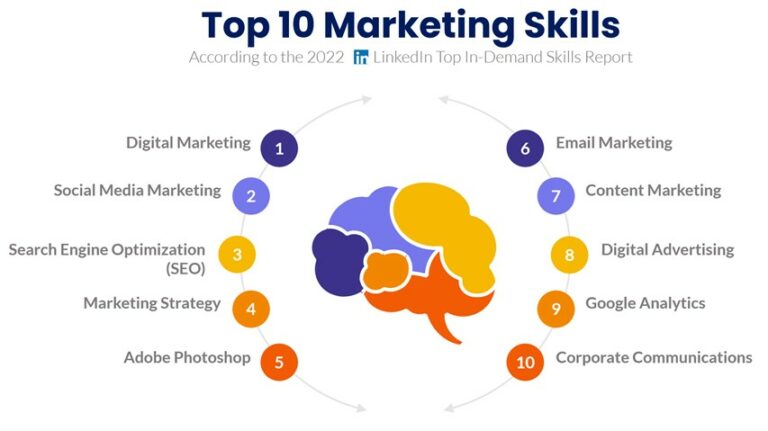
SEO for Lawyers
How to Get Your Law Firm Ranked on Google
Law Firm SEO, Lawyer SEO, Legal SEO, Law Firm search engine optimization, Lawyer search engine optimization, Legal search engine optimization – these are all terms that, if you’re a lawyer or run a law firm, you need to be familiar with.
In today’s digital marketing age, having an online presence is essential for any business, and the legal industry is no exception. This article will discuss the importance of SEO for lawyers, the top 8 SEO tactics for Law Firms, and how to get your law firm to rank on Google.
What is Law Firm SEO?
Law Firm SEO, also known as Legal SEO, is the process of optimizing your law firm’s website to improve its visibility in organic search results on search engines like Google. Organic search results are the non-paid results that appear on search engine results pages (SERPs). Optimizing your law firm’s website can increase the likelihood that potential clients will find your website when searching for legal services in your practice area.
Does SEO Work for Lawyers?
The short answer is yes – SEO can work wonders for lawyers. In today’s competitive markets, having a robust online presence is essential for any business. Optimizing your law firm’s website for search engines can increase your visibility in organic search results, which can lead to more potential clients visiting your website. However, it’s important to note that SEO is not a one-time task – it’s an ongoing process that requires effort and dedication.
Why is SEO for Lawyers Important?
SEO is vital for lawyers because it allows you to reach potential clients who are actively searching for legal services online. With the majority of people now turning to the internet to find information, law firms must have a strong online presence to attract potential clients. In addition, SEO can help establish your law firm as a reputable and authoritative source in your practice area, increasing trust and credibility with potential clients.

Top 8 SEO Tactics for Law Firms
Technical SEO
Technical SEO is the process of optimizing the behind-the-scenes elements of your website to improve its visibility in search results. By focusing on website structure, meta descriptions, and header tags. Website structure refers to how your website is organized and how easy it is for search engines to crawl and index your pages.
Optimizing these technical elements of your website can improve its visibility in search results and make it more user-friendly for search engines and users.
High-Quality Content
Creating high-quality, relevant content is essential for SEO. Search engines use the content on your website to understand the topics and themes that your website covers, which helps them to determine where to rank your pages in search results.
By creating high-quality, relevant content targeted to your prospective audiences, you can increase the chances of your website appearing in search results for relevant keywords. In addition, creating valuable content can help establish your law firm as a reputable and authoritative source in your practice area, increasing trust and credibility with potential clients.

Link Building
Backlinks, also known as inbound links, are links from other websites that point to your website. They are a key ranking factor for SEO, as they signal to search engines that other websites consider your website valuable and credible. The more high-quality backlinks you have pointing to your website, the more likely it is to rank well in search results.
Link building for your law firm’s website, you can reach out to other websites in your niche and offer to write a guest post on the topic of their choice. Doing so will allow you to increase your search engine ranking and generate leads by drawing attention to your expertise and knowledge. You can also get more exposure for your firm by participating in online communities or contributing valuable insights or information. Creating content that is valuable and relevant to others is another way to connect with potential clients.
Google Business Profile
Google My Business, or as it is now called Google Business Profile, is a free listing service provided by Google that allows businesses to manage their online presence across Google, including Search and Maps. By creating a Google My Business listing for your law firm, you can improve your visibility in local search results and make it easier for potential clients in your area to find your law firm.
A Google My Business listing allows you to provide information about your law firm, such as your address, phone number, hours of operation, and reviews. It also allows you to upload photos of your law firm and respond to reviews, which can help to establish trust and credibility with potential clients.
Ask for Positive Reviews
Positive reviews are important in building trust and credibility with potential clients. Reviews can be found on various platforms such as Google, Yelp, and Avvo. When potential clients search for your law firm, they can read what others have said about it, influencing their decision to contact you.
Positive reviews can help to increase your law firm’s visibility in local search results. Ensure excellent service to your clients, and ask them to leave a review on your Google My Business page or other review sites.
Social Media
Utilizing social media platforms such as Facebook, Twitter, and LinkedIn can promote your law firm’s visibility online and help you reach potential clients who may not have found your website through organic search results.
Regularly posting updates and engaging with your followers can build a following and drive traffic to your website. Social media can also drive positive reviews by encouraging satisfied clients to leave a review on your Google My Business page or other review sites.
Google Analytics
Google Analytics is a free tool provided by Google that allows website owners to track the performance of their websites. With Google Analytics, you can track important metrics such as traffic, bounce rate, and conversion rate. This information can help you understand how potential clients interact with your website and make informed decisions about your search engine optimization (SEO) efforts.

Google Analytics tracks a website’s performance by analyzing the traffic sources and activity on specific pages. The tool can help you identify which pages are performing well and which need optimization. Furthermore, it can help you identify which keywords potential clients use to find your website. This information can inform your future content strategy.
Optimized Meta Titles and Description
Meta titles and descriptions are HTML tags that help search engines categorize a webpage and give users an idea of what the page contains. A well-written meta title and description can help to improve your website’s click-through rate (CTR) in search results by making it more likely that users will click on your website.
The meta title should be a concise and accurate summary of the content on the page and include the main keywords. The meta description should provide more detail and entice users to click on the website. Remember that the meta title and description should also be user-friendly and easy to read, as it will be the first thing potential clients will see in the SERPs.
Local SEO for Law Firms
Local SEO is a specific type of SEO designed to help businesses improve their visibility in local search results. It can be especially beneficial for law firms, as many potential clients will search for legal services in their local area. Optimizing your law firm’s website for local SEO can increase the likelihood that potential clients in your area will find your website when searching for legal services.
Here are the top 5 things all law firms should focus on when doing local SEO;
- Accurate and consistent business information: Having accurate and consistent business information such as your name, address, phone number, and hours of operation on your website can help to improve your visibility in local search results. It’s important to ensure this information is the same across all online platforms, including your website and local listing services such as Google My Business.
- Google My Business listing: Having a verified Google My Business listing can help to improve your visibility in local search results, as it allows you to provide additional information about your law firm, such as reviews, photos, and services offered.
- Positive reviews: Positive reviews from satisfied clients can help to establish trust and credibility with potential clients and improve your visibility in local search results.
- Local keyword optimization: Optimizing your website for local keywords can help to improve your visibility in local search results. Including your city, state, and practice area in your website’s title tags, meta descriptions, and content can help with local keyword optimization.
- Backlinks from local websites: Backlinks from other reputable local websites can help to signal to search engines that your law firm is a credible and trustworthy source of legal services in your area.
Types of Content for Legal SEO
When it comes to content for legal SEO, it’s important to focus on creating high-quality, relevant content that is targeted to your target audience. Some content that can be particularly effective for legal SEO includes:
- Blog posts: Blogging can help establish your law firm as a reputable and authoritative source in your practice area.
- Case studies: Sharing case studies can help to demonstrate your law firm’s expertise and success in specific areas of law.
- Landing pages: Creating dedicated landing pages for specific practice areas can help to improve your website’s visibility in search results for those specific keywords.
- FAQs: Providing answers to frequently asked questions can help to establish your law firm as a reliable and trustworthy source of information.

How to Get Backlinks for a Law Firm Website
Backlinks, also known as inbound links, are links from other websites that point to your website. They are a key ranking factor for SEO, as they signal to search engines that other websites consider your website to be highly valued and authoritative. To get backlinks for your law firm website, you can:
- Guest post on other websites: Reach out to other websites in your niche and offer to write a guest post in exchange for a link back to your website.
- Participate in online communities: Join online communities related to your practice area and contribute valuable insights and information.
- Create shareable content: Create content that is likely to be shared and linked to by others.
Why Use an SEO Agency to Do Your Law Firm SEO?
While it is possible to do your own SEO, staying up-to-date with the latest SEO trends and best practices can be time-consuming and challenging. An SEO agency like Digital Results can help you to save time and achieve better results by
- Conducting keyword research and creating a targeted SEO strategy
- Optimizing your website’s structure and writing new content
- Building high-quality backlinks to your website
- Tracking and analyzing your website’s performance
- Staying up-to-date with the latest SEO trends and best practices
In the competitive world of law, having a strong online presence is essential for attracting potential clients. By investing in an SEO agency for your law firm, you can increase your law firm’s visibility in organic search results, establish your law firm as a reputable and authoritative source in your practice area, and ultimately increase your bottom line.
It’s important to remember that search engine optimization (SEO) is an ongoing process that requires effort and dedication. Still, following the tips discussed in this article can increase the chances of your law firm ranking on Google and reaching potential clients.
Ready to Grow Your Search Engine Results?
Let Digital Results assist you in your SEO strategy and help
deliver the search engine results you need.





